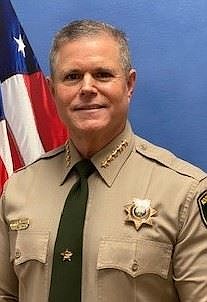Sheriff's office relies on hundreds of special deputies
COEUR d’ALENE — To facilitate law enforcement throughout the county, Kootenai County Sheriff Bob Norris cross-deputizes police officers from other jurisdictions and swears in some special deputies who don’t have backgrounds in law enforcement.
In Idaho, peace officers only have policing power within their political subdivisions, with some exceptions.
For example, a Coeur d’Alene police officer may generally only conduct law enforcement activities within city limits, except in cases such as a violent crime or hot pursuit or when responding to a call for assistance from another law enforcement agency.
Become a Subscriber!
You have read all of your free articles this month. Select a plan below to start your subscription today.
Already a subscriber? Login







